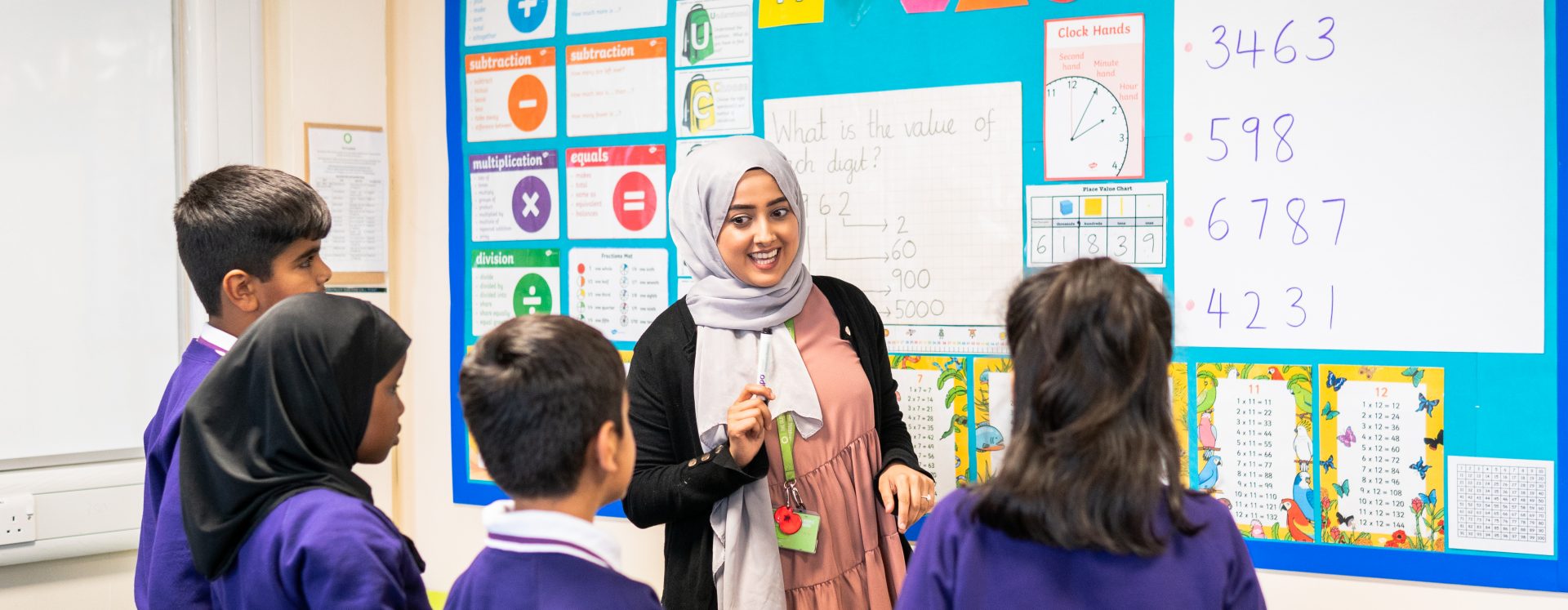Science
“The important thing is to never stop questioning” (Einstein)
At The Olive School, Bolton, our young scientists will acquire life-long enquiry science skills, in order to explore and understand the world they live in, alongside the vast knowledge of the disciplines of biology, physics and chemistry. They will also develop an understanding of the vital role that major scientific ideas and scientists have played in society. In doing so, all our children, regardless of their starting points, will be fully prepared for their next stage of science education, and beyond.
Science is taught discretely, with a focus on substantive knowledge-rich content and the development of essential disciplinary knowledge. The National Curriculum programmes of study and Early Years Foundation Stage framework are fully adhered to and then supplemented with additional knowledge-rich content. This provides a coherent science curriculum that both prepares children extremely well for future learning and gives them the tools to independently investigate and explore the world further.
The science curriculum encourages children to be curious about natural phenomena and to be excited by the process of understanding the world around them. We want our children to remember the concepts they learn. Therefore, the curriculum focuses on the sequential development of essential substantive knowledge underpinning biology, chemistry and physics, as per the science progression map below. Over time, these building blocks of component learning are transformed into a deep understanding of the real world. Each year group deepens their understanding of key concepts, adding new generative knowledge to existing schema. For example, the biology strand of ‘plants’ is revisited multiple times throughout the year groups, with the component learning of basic plant structure in Year 1 transforming into the composite learning of water transportation within plants in Year 3.
Procedures and concepts that underpin scientific methods are developed through the systematic focus on disciplinary knowledge. Every unit of work contains opportunities to develop the Working Scientifically skills of asking questions, planning enquiries, observing, measuring, recording, presenting and interpreting results, drawing conclusions, predicting and evaluating, according to the progression in these skills as per the science progression map. Thus, essential science concepts are developed whilst children investigate the world around them. The different approaches to science enquiry, such as fair testing, research and classifying are also systematically developed in the disciplinary knowledge section of the progression map. Each science unit of work is then framed around an enquiry question, ensuring a systematic, contextualised development of both substantive and disciplinary knowledge.
These units are planned in conjunction with the science progression map, which signposts essential prior knowledge and ensures the careful sequencing of learning, in adherence to the National Curriculum, please see below.
Pupils have access to the following Science opportunities to develop their love of Science:
- Science Day is a yearly event at The Olive School, Bolton and is planned to address and developed the needs of our young scientists, alongside the national theme.
Resources
To view our Progression Map, click here
To view our Science Pathway Roadmap, click here

